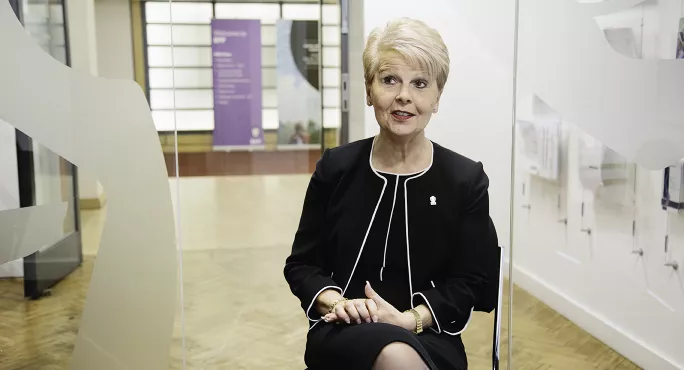- Home
- NHS trusts embracing apprenticeships but warn major problems remain
NHS trusts embracing apprenticeships but warn major problems remain

The NHS, Britain’s biggest employer, is outperforming other organisations when it comes to apprenticeships despite major frustrations with the levy, according to a major report released today.
NHS trusts are planning to spend their levy funds at a far greater rate than other employer, says the report by BPP University in partnership with the Education & Skills Funding Agency and Health Education England.
Most are preparing to expand their apprenticeship programmes, although serious concerns remain over the new system, says the report.
It is based on a survey of 175 trusts, which represents over two-thirds of the sector in England, and found that almost all (95 per cent) planned to use the apprenticeship levy.
More than half (52 per cent) set to spend the majority of funds in the first year compared to less than a fifth (18 per cent) of employers outside the NHS.
Expansion
More than three-quarters of trusts (79 per cent) plan to expand their number of apprenticeship programmes.
Business and administration, healthcare support and nursing degree apprenticeships are the three most popular apprenticeships among NHS trusts.
The report states: “NHS trusts have not responded to the levy in the same way as other employers. Most, for instance, plan to spend their levy funds quickly and at a far faster rate than employers outside the NHS. They have also devoted most of their apprenticeship efforts to existing staff rather than external hires”.
More than half of trusts [52 per cent] will use at least 80 per cent of the levy on internal apprentices. In contrast, less than one in seven (14 per cent) will spend 80 per cent of the levy on external apprenticeships.
Obstacles
However, 91 per cent of trusts would like to see more flexibility in how they spend the levy and none being satisfied with the status quo.
The report says: “Many respondents complained that they weren’t able to ‘offer apprenticeships that are not available yet’, or that they couldn’t offset wages or overheads, which again limited what they could do. ‘It is inconceivable,’ said one, ‘that we have huge funds sitting doing nothing while we have a shortage of clinical roles’.”
When asked what was stopping them expanding apprenticeship programmes, seven in ten of respondents (70 per cent) said the 20 per cent off-the-job training requirement was the biggest barrier.
Professor Lynne Gell, director of nursing and healthcare education at BPP University, said: “It would be foolish to downplay the challenges. The NHS is arguably the most complex organisation in the country. The expectations and pressures placed on it are unlike any faced by almost any other employer”.
She added: “That means that regulatory approval, for instance, can be far more rigorous in the NHS than outside it. It also means that converting existing courses into apprenticeships isn’t always straightforward”.
Writing in the foreword to the report, Professor Gell said: “Trusts, in common with employers outside the NHS, have widespread concerns about the inflexibility of the levy in general and the 20% off-the-job requirement in particular”.
Yet despite the concerns, more than three-quarters of trusts (78 per cent) will have launched apprenticeship programmes by next month and almost eight out of ten (79 per cent) plan to increase their number of apprenticeship programmes next year.
Game-changer
Responding to the findings, Mark Dawe, chief executive, Association of Employment and Learning Providers, said: “The 2.3 per cent public sector target was always going to drive employer behaviours as far as offering apprenticeships to existing members of staff were concerned but we are really pleased to see NHS trusts using the levy for clinical options including nursing in such a big way. This is why the levy truly is a game-changer”.
He added: “With the funding and staffing pressures trusts are facing and so many foreign staff leaving, it beggars belief that an ESFA funding rule requiring 20 per cent off the job training, which has no bearing on quality, is causing so much angst in a frontline service that needs to put patients first”.
Referring to Anne Milton, skills and apprenticeships minister, Mr Dawe said: “The minister says she is not budging on the issue for now but given her background [in nursing], we hope that she will think again when she sees these findings”.
A Department for Education spokesperson said: “It’s great news that NHS trusts are planning to expand their apprenticeship programmes. This will mean there are more opportunities for people of all ages to get involved and train in an incredibly rewarding and valuable career”.
They added: “To make the levy more flexible, from April levy-payers will be able to transfer up to 10% of their funds to another employer. We are working with employers on how the levy is spent so it works effectively and gives them the skills they need to grow.”
Want to keep up with the latest education news and opinion? Follow Tes FE News on Twitter, like us on Facebook and follow us on LinkedIn
Keep reading for just £1 per month
You've reached your limit of free articles this month. Subscribe for £1 per month for three months and get:
- Unlimited access to all Tes magazine content
- Exclusive subscriber-only stories
- Award-winning email newsletters



